- Home
- Stephanie Laurens
Lady Osbaldestone’s Christmas Goose Page 9
Lady Osbaldestone’s Christmas Goose Read online
Page 9
Registered the scent—one that evoked so many memories and brought them flooding back to him. Childhood Christmases with his mother still alive, and him and his brother running about the house, laughing and playing.
His hands rising to his hips, he turned away. In that instant, he didn’t know what the emotion filling him was.
Didn’t know who he was as he felt it.
His eyes focused, and he raked the front hall; glancing through the open dining room doorway, he took in the entirety of the decorations. He filled his lungs. “What the de—deuce have you done to my house?”
His tone would have had his troopers cringing.
Eugenia Fitzgibbon merely sniffed. “You were the one who refused to allow me—the Fulsom Hall estate—to make proper reparation for your damaged gate.”
When he swung to face her, she calmly continued, “This”—with a gesture, she encompassed all the greenery—“is the means of restitution left to me. I’ve decorated your house for the season.” Her gaze was sharp as her eyes met his. “It was the least I could do.”
“I fail to see the logic.”
“There’s logic, and then there’s common courtesy—the way things are done, at least here in Little Moseley. You might have forgotten, but we haven’t.”
He couldn’t swear at her. He glared instead.
She glared back.
The front door opened, and Lady Osbaldestone swanned in. “There you are, Eugenia, dear. I saw your gig outside and wondered.”
From the rear of the hall, Hendricks stumped forward. He nodded briefly to Lady Osbaldestone and Miss Fitzgibbon, then fixed Christian with an exasperated look. “Johnson has more questions about the gate. Best if you come and speak to him directly.”
Lady Osbaldestone seized the opening. “We won’t detain you, Lord Longfellow.” She beckoned Eugenia to join her. “Come, my dear. We can drive out together.”
Eugenia swiped up her bag, then dropped Christian a perfunctory curtsy. “Good day, Lord Longfellow.” You ungrateful wretch.
Christian clearly heard the words she forbore to utter aloud. He forced himself to nod—a distant, arrogant nod—to her, then directed a less fraught courtesy at Lady Osbaldestone.
Women!
Lady Osbaldestone smiled, nodded, and whisked Eugenia Fitzgibbon out of his door and drew it closed behind them.
Christian shook his head, then turned to Hendricks. Christian hesitated, then said, “Tell Johnson I’ll be there in a few minutes to talk about the damned gate.”
* * *
Beside Lady Osbaldestone, Eugenia walked with brisk, agitated strides across the forecourt to the waiting gigs.
Once she felt far enough removed from the house, she muttered, “That didn’t go well. No doubt he’ll tear everything down again. Or get Hendricks and Mrs. Wright to do it.”
Therese smiled and patted her arm. “Have faith, my dear. In actuality, we’ve made an excellent start. Your true accomplishment today doesn’t lie in greenery and pleasant scents but in opening his lordship’s eyes and forcing him to see again. That will, I judge, greatly aid his household in rehabilitating him as far as they are able. That is the real repair going on here, not anything to do with any gate or the house, much less seasonal decorations, however festive.”
They reached the gigs, and Therese halted and smiled at Lottie and George, already on the seat, and at Jamie, who was holding the reins of both carriages. “Now,” Therese declared, “we need to plan our next move.”
Eugenia relieved Jamie of the reins to her gig. The sidelong look she cast Therese declared she was aware that she was being manipulated, but in the circumstances—given the target was Christian Longfellow, who was the principal source of her present irritation—she was prepared to go along with Therese’s direction. “So what,” Eugenia asked, “is our next move to be?”
Therese tipped her head, clearly thinking, then admitted, “That, I fear, requires further cogitation. Leave it with me, my dear. I’ll send word once I decide.”
Eugenia was ready enough to leave the scene of their most recent rout.
Therese waved Jamie up, then paused to ask Eugenia, “Have you had any further trouble with your brother’s friends?”
Settling on her gig’s seat, Eugenia, faintly puzzled, replied, “No. They appear to be behaving themselves. At the very least, they’re much quieter.”
Therese climbed to the box seat of her gig, sat, and took the reins from Jamie. She smiled rather intently. “Do let me know if they cause any further difficulties. Just send word, and I’ll drop around.”
Clearly recalling the effect Therese had had on the Hall’s visitors, Eugenia nodded. “Thank you. If they revert to their worst, I will.”
“Excellent!” With a salute, Therese sent her mare clopping out of the forecourt and on down the drive.
Behind her, Eugenia brought her gig around and followed.
* * *
From his vantage point behind the drawing room curtain—now opened, forcing him to peek around the curtain’s edge—Christian watched the pair of gigs roll away. Turning from the sight, he humphed. He’d seen them talking—plotting. No doubt planning their next assault. He knew a tactical retreat when he saw one.
“Damned females!”
He started back toward the front hall—and only then saw the mistletoe tacked above the doorway. “Good God!”
He reached up and ripped the straggly greenery down. Then he thought to look into the other rooms. Lips tightening, he pulled down the bunches pinned above each door.
He tossed the leaves onto the hall table, then stalked to the library. He opened the door and looked up.
“Damn it! Even here.”
He pulled the last small bunch down. He stared at it—at the thin leaves, fine twigs, and firm white berries spread on his palm.
For a full minute, he stared at the sight while one part of him—the sane, logical, disillusioned part—prodded him to go into the hall and fling this last bunch in with the rest to be removed by his staff.
He had no idea why, instead, his fingers curled, and his hand moved and slipped that last bunch into his pocket.
He tried to find a reason, but couldn’t; all he knew was that keeping that last little bit of mistletoe somehow soothed him. Somehow, in some way, keeping that—holding on to its promise—felt right.
* * *
The following day, the weather turned utterly miserable. Gray clouds loured threateningly, and alternating gusts of sleet and snow kept everyone indoors. Therese vetoed any thoughts of attending Sunday service even though the church lay only across the lane. She was not about to risk her grandchildren coming down with colds or even something worse, especially not so close to Christmas. She felt sure Reverend Colebatch would understand. She wasn’t even sure he would hold services that day; she consulted Crimmins, but like her, he hadn’t heard the church bells that morning, although they agreed that could be because the wind was so atrociously strong it might have blown the sound away.
All that being so, Therese did not appreciate being confined within her walls, even such comfortable walls as those of Hartington Manor. Thick and in perfect repair, the walls held in the warmth of the fires that by her orders were kept glowing in all the hearths. She’d had the windows attended to that summer, and all fitted snugly, denying entry to even the most determined draft. But while the atmosphere was cozy and undeniably comforting, her interest in the usual indoor pursuits with which ladies of her station filled their time was severely limited. Embroidery had never been her forte.
Letter writing was the one ladylike indoor activity she had always considered useful—indeed, worthwhile. Consequently, that morning, she had taken refuge in her private parlor.
Her grandchildren had slipped through the door in her wake.
As she’d settled at the desk set beneath one window, she’d wondered whether she would be able to concentrate on her correspondence with the three imps in the same room, but somewhat to her surprise, she
found their chatter—suitably muted—a pleasant background sound, and their antics more often provided fodder for her scribing rather than inhibited her eloquence.
By eleven o’clock, she’d written two thick letters to close friends, and a general report to Celia on her children’s well-being.
While she’d been thus engaged, her mind had continued to examine her latest plan for drawing Christian Longfellow back into the village fold. Having found nothing in that plan over which to cavil, nothing she thought needed further adjustment or alteration, she set the finished letter to Celia on top of the other two, then opened the second drawer on the left of her desk and drew out a small stack of thick ivory cards.
After setting the cards to one side, on a sheet of plain paper, she scrawled a quick outline of what she intended to inscribe, then listed the recipients. She paused to consider the list, then nodded to herself, positioned the first invitation on the blotter, dipped her nib in the inkpot, and started to write.
After finishing the first invitation, she sat back to examine it, then she blotted it, placed it with the letters, and paused to glance at her grandchildren.
Jamie and George were playing on the hearthrug with a set of toy soldiers that, thank heaven, they’d brought with them. The boys were apparently engrossed in recreating some battle that involved much cannon fire and explosions, along with cavalry charges, if the noises emanating from before the fireplace were any indication.
Lottie, meanwhile, had lost interest. Clutching her doll, she had climbed up on the chair beside the desk and, on her knees, leant over to study the card Therese had laid atop her letters. “Your writing is very pretty, Grandmama.”
“Thank you, my dear.” Therese lifted another card from the stack and set it on her blotter. As she picked up her pen, she glanced at her granddaughter. “You’ll have to practice your writing when you grow older. A gentleman may scrawl, but a lady’s hand should be clear and legible, yet elegant and refined.”
She carefully transcribed the second of her invitations, with Lottie’s eyes following every stroke. Sitting back, Therese scanned her effort, then smiled, blotted, and placed that invitation with the first. Almost to herself, she murmured, “It doesn’t do to rush things—indeed, timing is everything in almost every sphere.”
After a moment during which Therese started on her third invitation, Lottie wriggled around and sat properly on the chair. She swung her legs, then asked, “Are we matchmaking with Miss Fitzgibbon and Lord Longfellow, Grandmama?”
From the mouths of babes…
Therese paused in her scribing and regarded her granddaughter. After a moment, she replied, “Only so far as we’re able. Making excellent matches requires a light touch and is not something anyone can force. We do what we can, as we can, and then allow Cupid to do the rest if he’s so inclined.”
Lottie’s brow puckered. “Who’s Cupid?”
Softly, Therese laughed and dipped her nib. “He’s the god who bestows love on us mere mortals.”
Lottie’s lips formed a soundless “Oh.” After a moment, she asked, “Will he come for Miss Eugenia and Lord Longfellow?”
“As to that, my dear, I can’t say, but I do have hope.”
Ten minutes later, Therese set down her pen and blotted the last of the invitations. She set the card on the small pile, met Lottie’s eyes, and smiled. “And that, my dear, will set in train my next attempt to lure Cupid to Little Moseley.”
Chapter 7
Weak sunshine greeted the inhabitants of Little Moseley when they woke the next morning. Snow had piled inches thick and was topped by a crisp, crunchy crust that had the children, once rugged up, leaping around the front lawn, squealing with delight while they and Therese waited for the gig to be brought around.
Over breakfast, they had discussed their quest to track down the missing geese and had decided that a concerted effort to question all the villagers was a sensible next step. As Jamie had pointed out, it was difficult to believe that an entire flock of geese had vanished with nary a squawk or a fallen feather, and the villagers had now had time since learning of the geese’s disappearance to cast their eyes around their own domains.
John Simms led the mare and the gig onto the sweep of drive before the house. Therese left the porch and carefully picked her way across the snowy gravel. “Come, children!”
The three came running, their cheeks and noses rosy red, their faces alight, their eyes shining.
John patiently held the mare steady while the trio clambered up. Therese followed, then John handed her the reins. He tipped his head at the mare. “She should find her way well enough. The drive’s mostly clear, and the snow in the lane isn’t deep. Just be wary of any drifts or deeper sections.”
“Thank you, John. I will.” Therese settled on the seat, cast a swift glance over the children, then set the mare trotting slowly down the drive.
Adhering to their prearranged plan of campaign, they drove all the way up the High Street to where Tooks Farm lay at the northern end, just before the lane joined the road to Romsey. As had happened previously, Tooks was in his yard when they drove up and came to the gate to speak with them.
Even before they asked, Tooks shook his head. “Not a single sign of those blasted birds, begging your pardon, your ladyship. It’s a right worry and all.”
“No suggestions from anyone?” Therese asked.
“Not a squawk.” Tooks looked glum.
Therese glanced at the children. “Well, we’re on the hunt, Tooks, so don’t despair. I have no idea if we’ll find your birds before Christmas Day, but we’re certainly going to try.”
The three children cheered and managed to raise a smile from Tooks.
From there, they turned the gig around and returned to the lane, this time rolling south. They didn’t bother diverting to Fulsom Hall, reasoning that if anyone there had any news of the flock, Eugenia would send word.
“Those fields”—Therese tipped her head toward the cleared expanse glimpsed through the woods to their left—“belong to Witcherly Farm, but our Tilly who works in the kitchen with Mrs. Haggerty comes from Witcherly—her parents run the farm, and she lives there and comes to the manor every day. I think we can be sure that if anyone at Witcherly knew anything about the geese, we would have heard.” Therese consulted her mental map of the village. “And we checked with the Swindons the other day, so if they find anything, they’ll let us know. The only other farm in that direction is Crossley Farm.”
“And your Ned, the gardener, lives there, doesn’t he?” Jamie asked.
“Indeed, he does, so we don’t need to venture out that way, either.” Therese looked ahead. “We can safely leave the church and vicarage to Mrs. Colebatch—she’ll report if their staff find anything or the reverend hears anything from his parishioners. As for all the cottages, there’s too many to call at, but everyone uses the shops and the inn—we can ask there.”
They tied the mare to the hitching post outside Mountjoy’s General Store and walked across the lane to Bilson’s, the butcher. Donald Bilson was the main butcher, assisted by his son, Daniel; Daniel’s wife, Greta, was behind the counter when Therese led her troop of investigators into the shop.
“Aye,” Greta said at mention of the geese. “Even though we’re getting the extra orders, it’s still a shame. We like our goose as well as anyone, and I can’t think what Tooks will do, not having all those birds to sell. All but a handful spoken for, I hear.”
“I take it none of your family have seen any sign of the geese?” Therese inquired.
“No, my lady. Not a feather. And my Daniel and his mates were out hunting rabbits in the woods north of Tooks’s place night before last, out along the lane to West Wellow, and he said they all kept a good lookout, but they didn’t see any sign the flock had gone that way.”
“Thank you. We can but keep looking.” With a nod, Therese ushered her troops out of the door and back into the lane.
They asked at Mountjoy’s Store, which was al
so the local post office and therefore a hub of village life. Cyril Mountjoy, the owner, was behind the counter when they walked in, and as luck would have it, Flora Milsom, the farmwife from Milsom Farm that lay south of the village beyond Dutton Grange, had dropped in to buy some flour.
Flora had heard all about the missing geese and assured Therese and her helpers that none of her brood had seen any hint of the birds in their fields or coppices. “Mind you, seems like they’d have to come through the Grange to reach us, and Johnson, who works for his lordship, told me they hadn’t had any sightings, either.”
Mr. Mountjoy added that he’d asked everyone who had darkened the shop’s door since he’d heard the birds had vanished. “But seems no one has any inkling as to where the geese have gone.” He paused, then added, “Odd, really. I can understand Tooks losing one or two, even a handful, but the whole blinking flock—begging your pardon, my lady, but that’s a lot of birds to go missing.”
Therese thanked Mr. Mountjoy and Mrs. Milsom, and Therese and the children continued on their way—to Butts Bakery, where the children were each rewarded with a fruit scone fresh from the oven by Peggy Butts, who was, in fact, the baker and also sister to Flora Milsom.
When Therese inquired as to the geese, Peggy shook her head. “I’ve not the slightest clue, my lady. None of us have.”
Therese stifled a sigh. Tempted by the aromas wafting about the shop, she put in an order for a fruitcake for the New Year. “One can never have too much of your fruitcake, Mrs. Butts.”
Peggy preened and said she would have her daughter, Fiona, deliver the cake to the manor three days after Christmas. “For you’ll be wanting it fresh baked, and I won’t be stoking up the ovens again until the morning after Boxing Day.”
With smiles and farewells, they departed the bakery and walked on to the Cockspur Arms. At that hour, the taproom was filling with workers from the nearby farms, coming in for their lunch and a pint with which to wash it down. Therese led her small band into the room opposite the tap—a small parlor reserved for ladies and private parties. After claiming the empty table by the window, she ordered a pot of tea, three glasses of milk, and a plate of scones with jam.

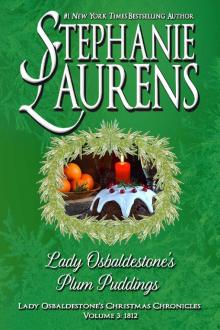 Lady Osbaldestone’s Plum Puddings: Lady Osbaldestone’s Christmas Chronicles Volume 3
Lady Osbaldestone’s Plum Puddings: Lady Osbaldestone’s Christmas Chronicles Volume 3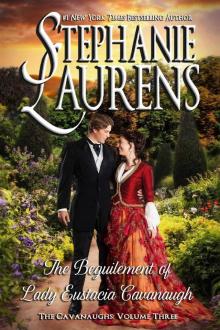 The Beguilement of Lady Eustacia Cavanagh: The Cavanaughs Volume 3
The Beguilement of Lady Eustacia Cavanagh: The Cavanaughs Volume 3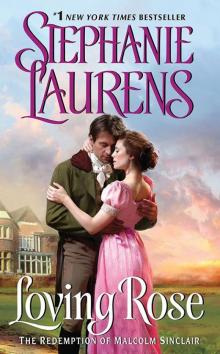 Loving Rose: The Redemption of Malcolm Sinclair (Casebook of Barnaby Adair)
Loving Rose: The Redemption of Malcolm Sinclair (Casebook of Barnaby Adair)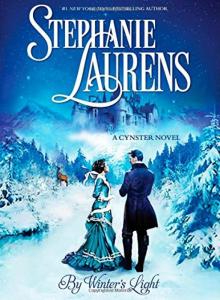 By Winter's Light
By Winter's Light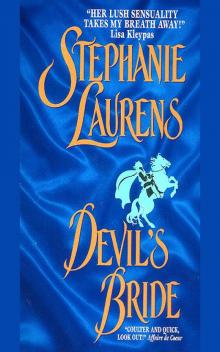 Devil's Bride
Devil's Bride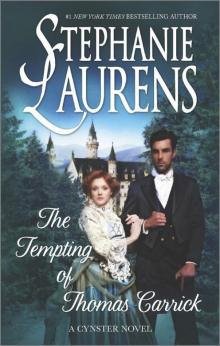 The Tempting of Thomas Carrick
The Tempting of Thomas Carrick![Cynster [22.00] A Match for Marcus Cynster Read online](http://i1.bookreadfree.com/i/03/16/cynster_[22_00]_a_match_for_marcus_cynster_preview.jpg) Cynster [22.00] A Match for Marcus Cynster
Cynster [22.00] A Match for Marcus Cynster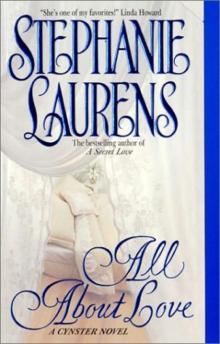 All About Love c-6
All About Love c-6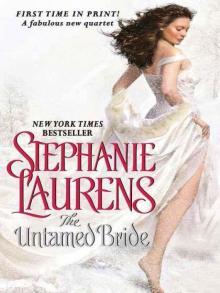 Cobra 01 The Untamed Bride
Cobra 01 The Untamed Bride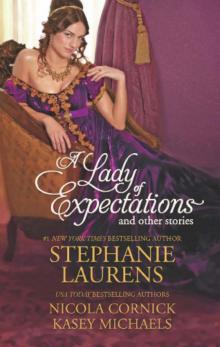 A Lady of Expectations and Other Stories
A Lady of Expectations and Other Stories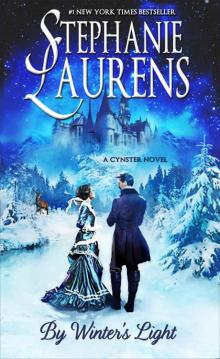 By Winter's Light_A Cynster Novel
By Winter's Light_A Cynster Novel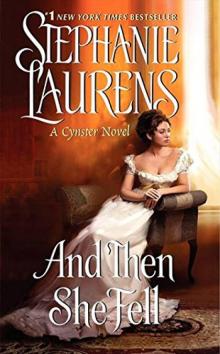 And Then She Fell
And Then She Fell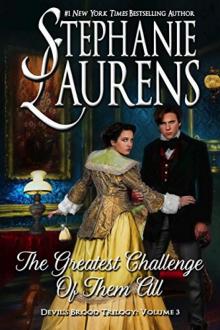 The Greatest Challenge of Them All
The Greatest Challenge of Them All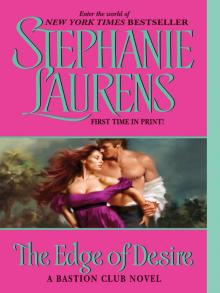 The Edge of Desire
The Edge of Desire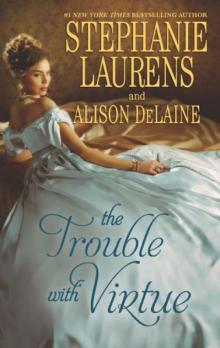 The Trouble With Virtue: A Comfortable WifeA Lady by Day
The Trouble With Virtue: A Comfortable WifeA Lady by Day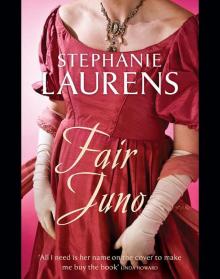 Fair Juno
Fair Juno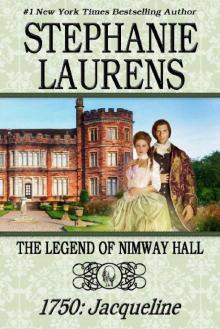 THE LEGEND OF NIMWAY HALL: 1750 - JACQUELINE
THE LEGEND OF NIMWAY HALL: 1750 - JACQUELINE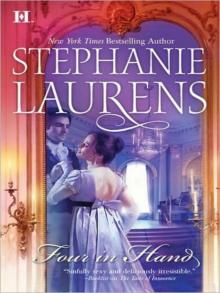 Four In Hand
Four In Hand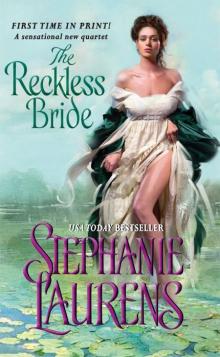 The Reckless Bride
The Reckless Bride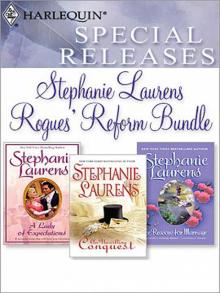 Stephanie Laurens Rogues' Reform Bundle
Stephanie Laurens Rogues' Reform Bundle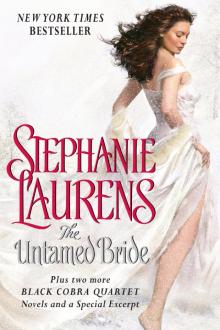 The Untamed Bride Plus Black Cobra 02-03 and Special Excerpt
The Untamed Bride Plus Black Cobra 02-03 and Special Excerpt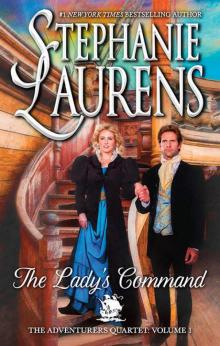 The Lady's Command (Adventurers Quartet #1)
The Lady's Command (Adventurers Quartet #1)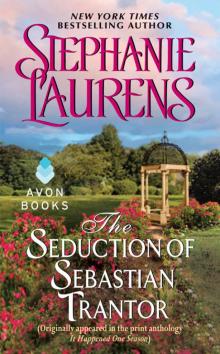 The Seduction of Sebastian Trantor
The Seduction of Sebastian Trantor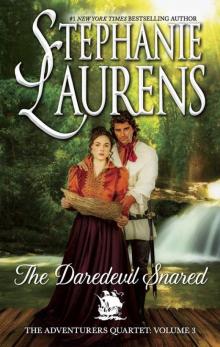 The Daredevil Snared (The Adventurers Quartet Book 3)
The Daredevil Snared (The Adventurers Quartet Book 3)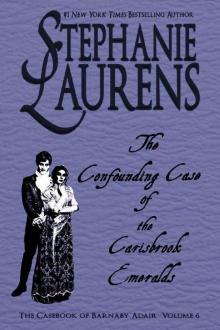 The Confounding Case Of The Carisbrook Emeralds (The Casebook of Barnaby Adair 6)
The Confounding Case Of The Carisbrook Emeralds (The Casebook of Barnaby Adair 6) Lord of the Privateers (The Adventurers Quartet)
Lord of the Privateers (The Adventurers Quartet)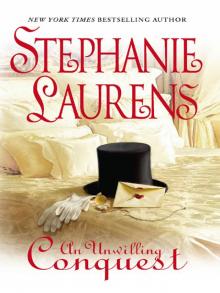 An Unwilling Conquest
An Unwilling Conquest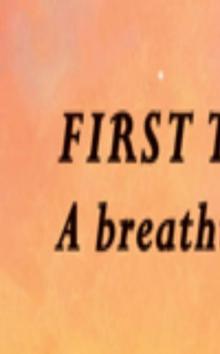 Brazen Bride
Brazen Bride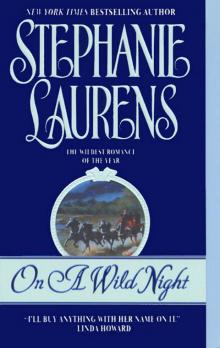 On a Wild Night
On a Wild Night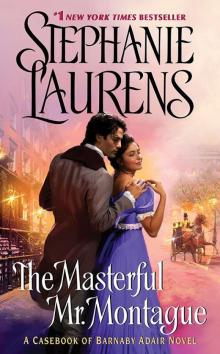 The Masterful Mr. Montague: A Casebook of Barnaby Adair Novel
The Masterful Mr. Montague: A Casebook of Barnaby Adair Novel Lord of the Privateers
Lord of the Privateers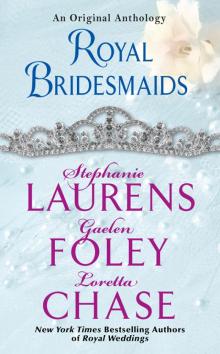 Royal Bridesmaids
Royal Bridesmaids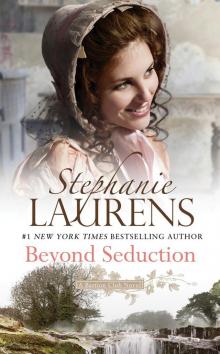 Beyond Seduction
Beyond Seduction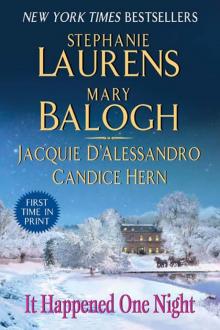 It Happened One Night
It Happened One Night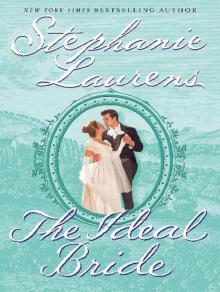 The Ideal Bride
The Ideal Bride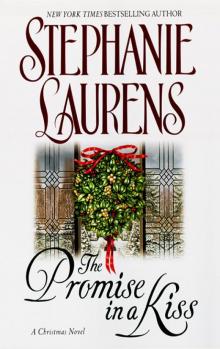 The Promise in a Kiss
The Promise in a Kiss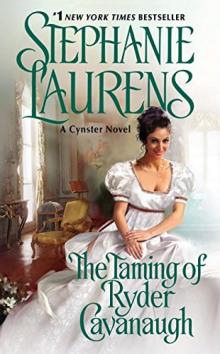 The Taming of Ryder Cavanaugh
The Taming of Ryder Cavanaugh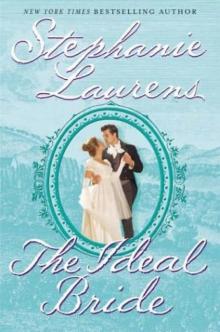 The Ideal Bride c-12
The Ideal Bride c-12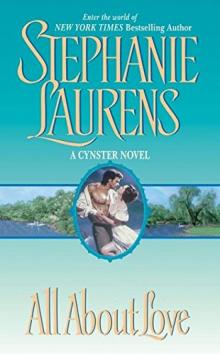 All About Love
All About Love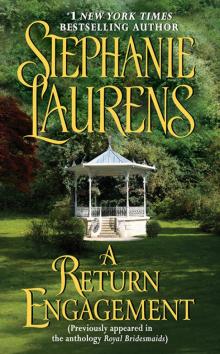 A Return Engagement
A Return Engagement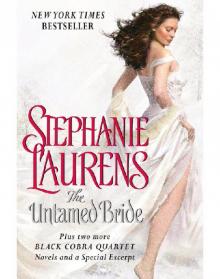 The Untamed Bride Plus Two Full Novels and Bonus Material
The Untamed Bride Plus Two Full Novels and Bonus Material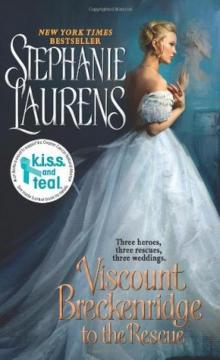 Viscount Breckenridge to the Rescue
Viscount Breckenridge to the Rescue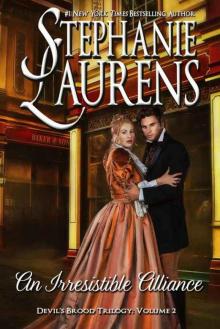 An Irresistible Alliance (Cynsters Next Generation Novels Book 5)
An Irresistible Alliance (Cynsters Next Generation Novels Book 5)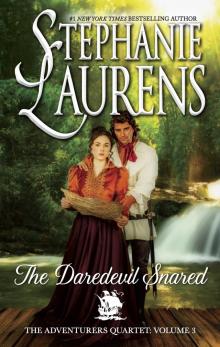 The Daredevil Snared
The Daredevil Snared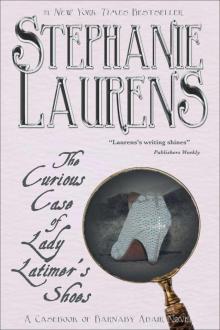 The Curious Case of Lady Latimer's Shoes: A Casebook of Barnaby Adair Novel
The Curious Case of Lady Latimer's Shoes: A Casebook of Barnaby Adair Novel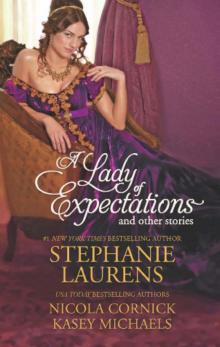 A Lady of Expectations and Other Stories: A Lady of ExpectationsThe Secrets of a CourtesanHow to Woo a Spinster
A Lady of Expectations and Other Stories: A Lady of ExpectationsThe Secrets of a CourtesanHow to Woo a Spinster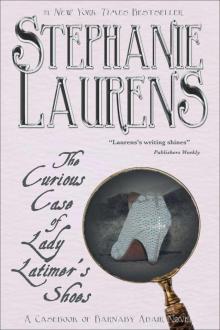 The Curious Case of Lady Latimer's Shoes: A Casebook of Barnaby Adair Novel (The Casebook of Barnaby Adair)
The Curious Case of Lady Latimer's Shoes: A Casebook of Barnaby Adair Novel (The Casebook of Barnaby Adair)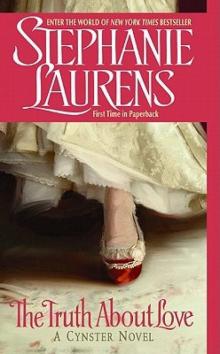 The Truth About Love
The Truth About Love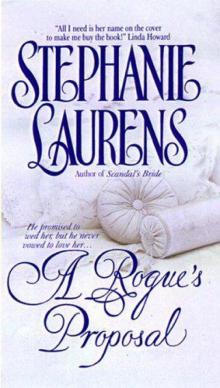 A Rogue's Proposal
A Rogue's Proposal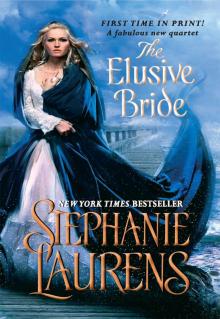 The Elusive Bride
The Elusive Bride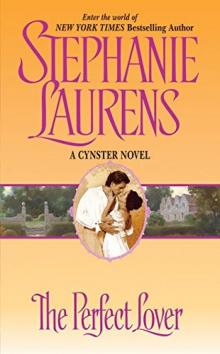 The Perfect Lover
The Perfect Lover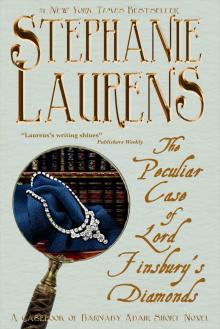 The Peculiar Case of Lord Finsbury's Diamonds: A Casebook of Barnaby Adair Short Novel
The Peculiar Case of Lord Finsbury's Diamonds: A Casebook of Barnaby Adair Short Novel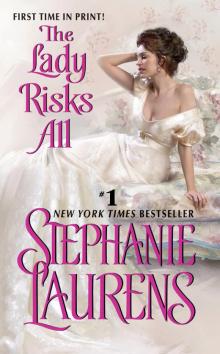 The Lady Risks All
The Lady Risks All The Murder at Mandeville Hall: The Casebook of Barnaby Adair: Volume 7
The Murder at Mandeville Hall: The Casebook of Barnaby Adair: Volume 7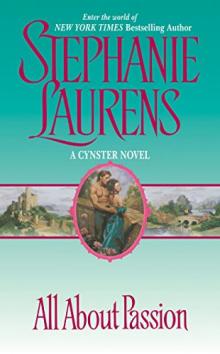 All About Passion
All About Passion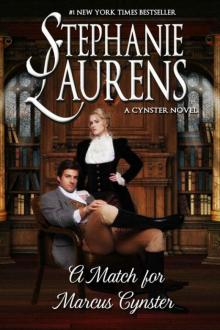 A Match for Marcus Cynster
A Match for Marcus Cynster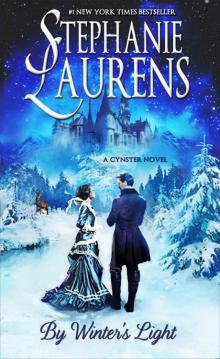 By Winter's Light: A Cynster Novel (Cynster Special Book 2)
By Winter's Light: A Cynster Novel (Cynster Special Book 2)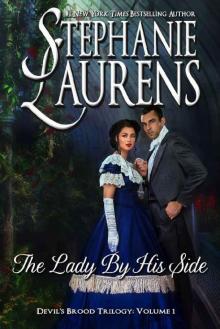 The Lady By His Side
The Lady By His Side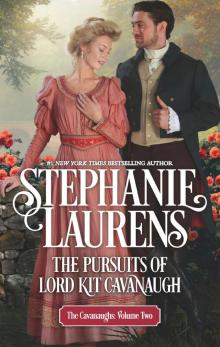 The Pursuits of Lord Kit Cavanaugh
The Pursuits of Lord Kit Cavanaugh Tangled Reins
Tangled Reins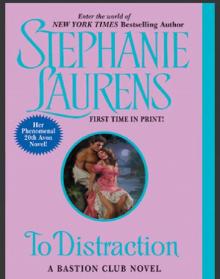 To Distraction
To Distraction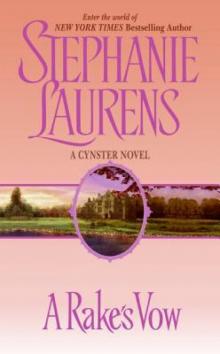 A Rake's Vow
A Rake's Vow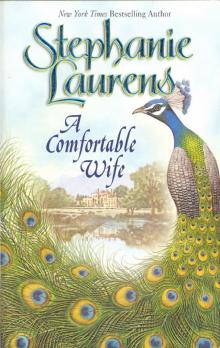 A Comfortable Wife
A Comfortable Wife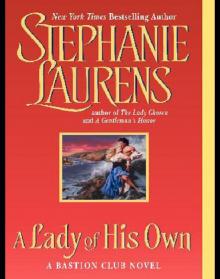 A Lady of His Own bc-3
A Lady of His Own bc-3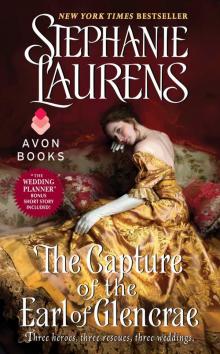 The Capture of the Earl of Glencrae
The Capture of the Earl of Glencrae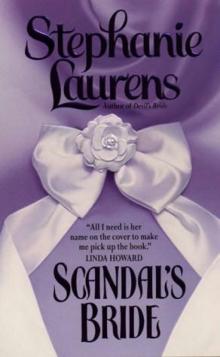 Scandals Bride c-3
Scandals Bride c-3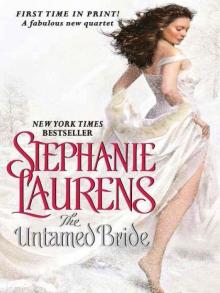 Untamed Bride
Untamed Bride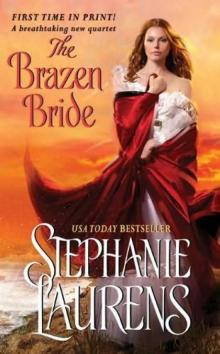 The Brazen Bride
The Brazen Bride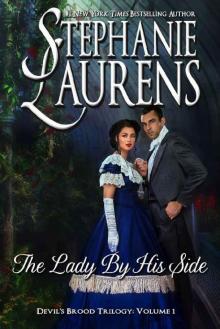 The Lady By His Side (Cynsters Next Generation Novels Book 4)
The Lady By His Side (Cynsters Next Generation Novels Book 4)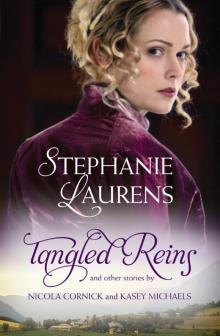 Tangled Reins and Other Stories
Tangled Reins and Other Stories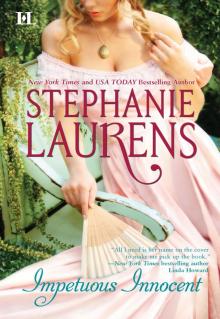 Impetuous Innocent
Impetuous Innocent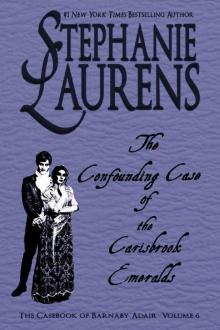 The Confounding Case Of The Carisbrook Emeralds
The Confounding Case Of The Carisbrook Emeralds Stephanie Laurens - B 6 Beyond Seduction
Stephanie Laurens - B 6 Beyond Seduction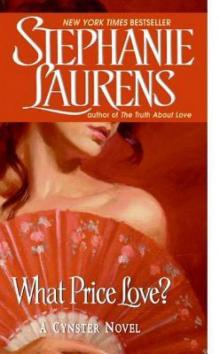 What Price Love?
What Price Love?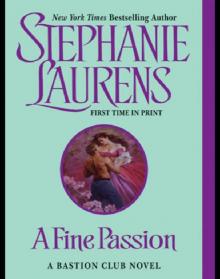 A Fine Passion
A Fine Passion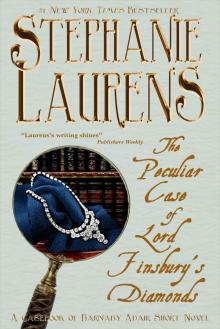 The Peculiar Case of Lord Finsbury's Diamonds: A Casebook of Barnaby Adair Short Novel (The Casebook of Barnaby Adair)
The Peculiar Case of Lord Finsbury's Diamonds: A Casebook of Barnaby Adair Short Novel (The Casebook of Barnaby Adair)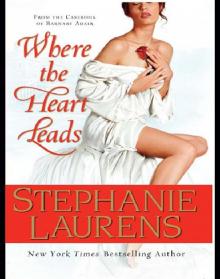 Where the Heart Leads
Where the Heart Leads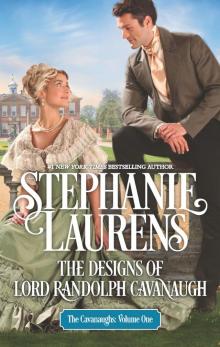 The Designs of Lord Randolph Cavanaugh
The Designs of Lord Randolph Cavanaugh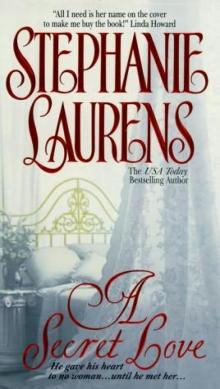 A Secret Love c-5
A Secret Love c-5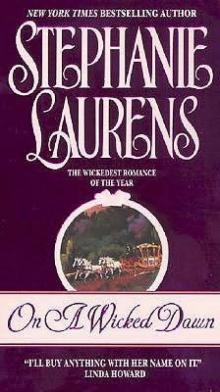 On a Wicked Dawn c-10
On a Wicked Dawn c-10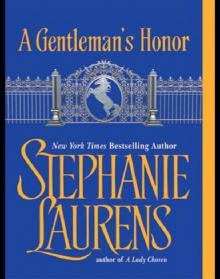 A Gentleman's Honor
A Gentleman's Honor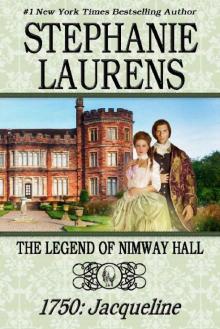 THE LEGEND OF NIMWAY HALL_1750_JACQUELINE
THE LEGEND OF NIMWAY HALL_1750_JACQUELINE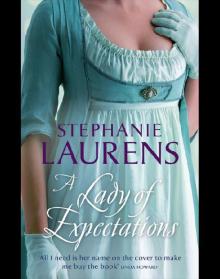 A Lady of Expectations
A Lady of Expectations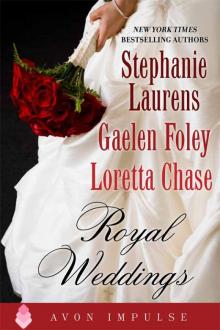 Royal Weddings: An Original Anthology
Royal Weddings: An Original Anthology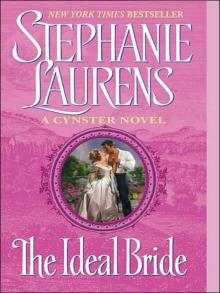 The Ideal Bride (Cynster Novels)
The Ideal Bride (Cynster Novels) Mastered by Love
Mastered by Love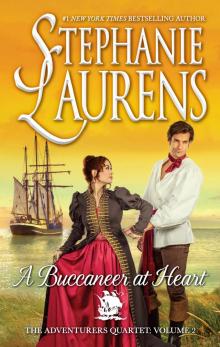 A Buccaneer at Heart
A Buccaneer at Heart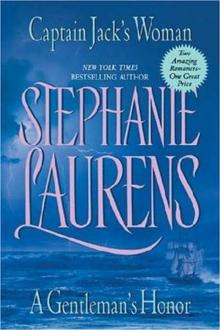 Captain Jack’s Woman / A Gentleman's Honor
Captain Jack’s Woman / A Gentleman's Honor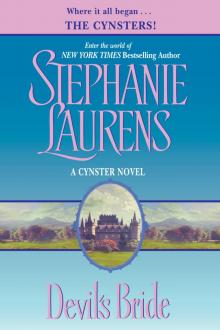 Devil's Bride with Bonus Material
Devil's Bride with Bonus Material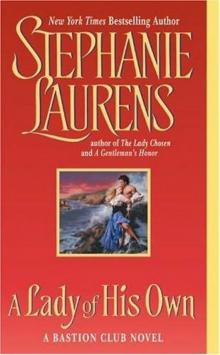 A Lady of His Own
A Lady of His Own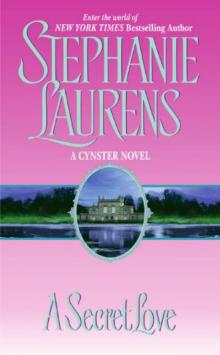 A Secret Love
A Secret Love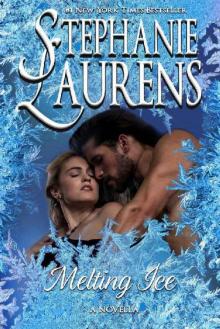 Melting Ice
Melting Ice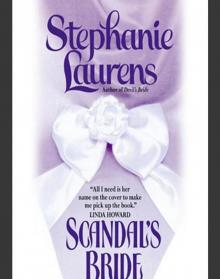 Scandal's Bride
Scandal's Bride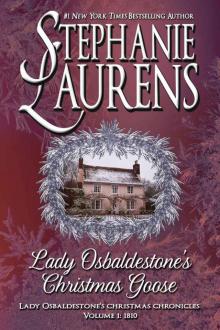 Lady Osbaldestone’s Christmas Goose
Lady Osbaldestone’s Christmas Goose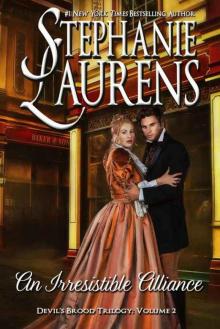 An Irresistible Alliance
An Irresistible Alliance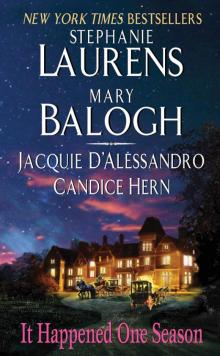 It Happened One Season
It Happened One Season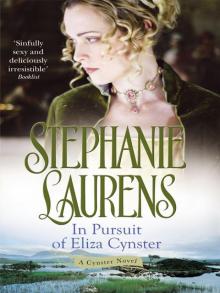 In Pursuit Of Eliza Cynster
In Pursuit Of Eliza Cynster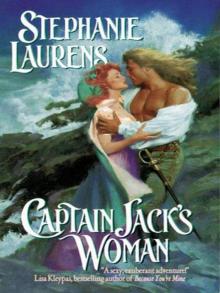 Captain Jack's Woman
Captain Jack's Woman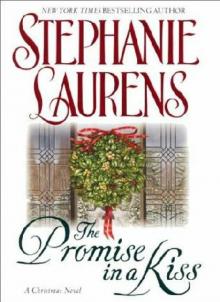 The promise in a kiss c-8
The promise in a kiss c-8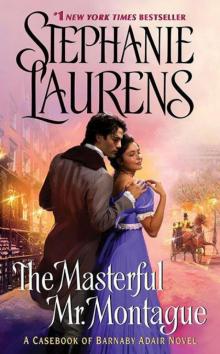 The Masterful Mr. Montague
The Masterful Mr. Montague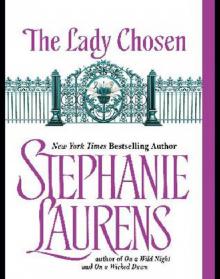 The Lady Chosen
The Lady Chosen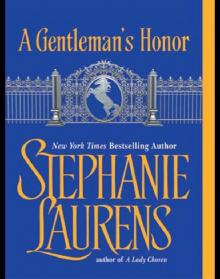 A Gentleman's Honor bc-2
A Gentleman's Honor bc-2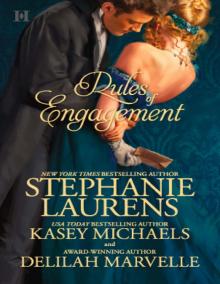 Rules of Engagement: The Reasons for MarriageThe Wedding PartyUnlaced (Lester Family)
Rules of Engagement: The Reasons for MarriageThe Wedding PartyUnlaced (Lester Family) Secrets of a Perfect Night
Secrets of a Perfect Night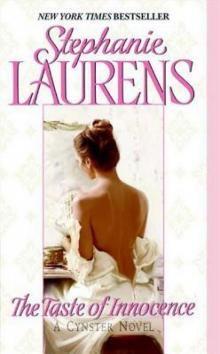 The Taste of Innocence
The Taste of Innocence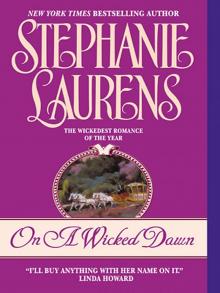 On A Wicked Dawn
On A Wicked Dawn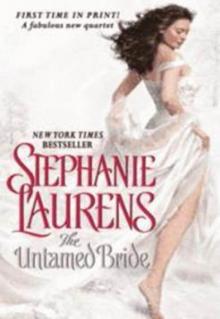 The Untamed Bride
The Untamed Bride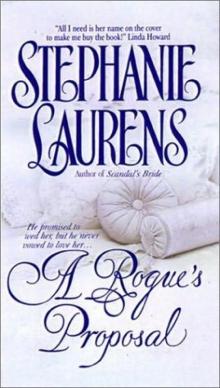 A Rogues Proposal c-4
A Rogues Proposal c-4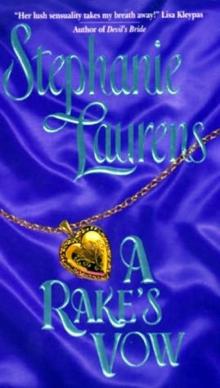 Rakes Vow c-2
Rakes Vow c-2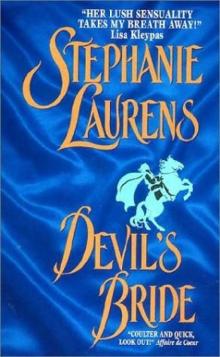 Devils Bride c-1
Devils Bride c-1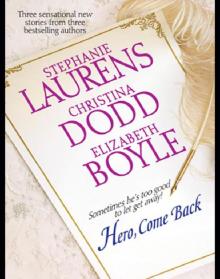 Hero, Come Back
Hero, Come Back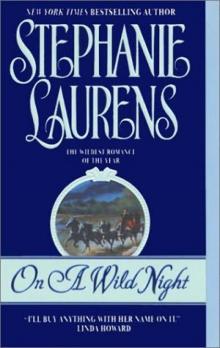 On a Wild Night c-8
On a Wild Night c-8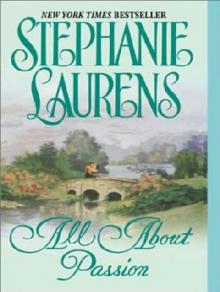 All About Passion c-7
All About Passion c-7